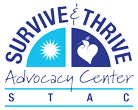If you encountered a human trafficking situation in your workplace or place of business, would anyone recognize it or know what to do? If your child was talking to a human trafficker on the internet, would you know how to spot the red flags?
Human trafficking is a crime of many crimes. Sex and labor trafficking can – and does – affect every community, but most people aren’t equipped with the information they need to recognize it and respond. Human trafficking training is important for everyone, whether you’re a parent, business owner, employee, healthcare professional, teacher or community member. Here’s why.
Rising Number of Cases
According to the U.S. Department of State, human trafficking is “a crime whereby traffickers exploit and profit at the expense of adults or children by compelling them to perform labor or engage in commercial sex.” When a person younger than 18 is used to perform a commercial sex act (or forced labor under Florida law), it is a crime regardless of whether there is any force, fraud, or coercion involved.
On a state level, the number of human trafficking cases in Florida is rising. It doesn’t just occur in large metropolitan areas – it can happen anywhere, and it is happening here in the Big Bend. Traffickers do their work in a number of legitimate or illegitimate industries, and our proximity to the agricultural sector and the many service industries like hospitality, fuels the demand for forced labor.
All of these factors contribute to the increased number of human trafficking victims – and survivors – who need support across the Big Bend. This makes education and training on the topic are more important than ever.
Impact of Social Media
Traffickers look for vulnerable people and often lure them through deceit. In recent years, smart phones and social media have opened new channels where traffickers target their victims. This method is often used to prey on children and young teens who think they are making friends or connecting with someone in their peer group, but are in reality being groomed by a stranger on the internet.
Human traffickers know that parents and caregivers cannot always know who their children are talking with online. A harmless gaming platform could actually be a means for a trafficker to target and groom a child or teen. Human trafficking training and education gives parents and caregivers tools to see the warning signs and identify these tactics for what they are.
We All Need to KNOW MORE
Most people are not trained to recognize the signs of human trafficking in their own community, which means they do not know how safely respond to a human trafficking situation. This is due in part to common myths about what human trafficking is, what it looks like and who is at risk. For instance, many people believe that human trafficking always involves violent crimes like kidnapping or assault.
In reality, many traffickers use tactics of coercion, threats and manipulation, which are hard to see by just looking at a situation. For instance, you can’t tell by driving by a construction site if the workers there are being labor trafficked. It’s hard to know if your teen’s new friend is recruiting them into a sex trafficking situation by inviting them to a weekend party. That’s why training and information is so desperately needed to fortify your family, your workplace, and your community.
Change the Narrative with FACTS
Disrupting human trafficking begins with understanding how sex and labor traffickers target their victims. Plus, misinformation seeps into our culture with sensationalized and wrong examples of sex and labor trafficking – like in the film Taken or the latest “real-life” crime drama on TV, or the massively misleading stories on certain websites online. It’s never been more important to know what’s real. Equip yourself and your organization with the truth about human trafficking – lives depend on it.
Register Today
Ready to take action? Survive and Thrive Advocacy Center supports ALL sex and labor trafficking survivors regardless of age, gender, immigration status, or faith, as well as those who are risk. STAC works hard to provide education about how to recognize, report and prevent human trafficking. Empower your employees and demonstrate your business’s commitment to our community by registering for the STACPRO training program. We teach professionals and people across-the-board how to recognize trafficking survivors and meet their needs through knowledge and compassion.
STAC’s website also has a rich array of information like topical webinars ranging from CEU-approved training for healthcare professionals to how to protect youth and adults from sex and labor trafficking.




